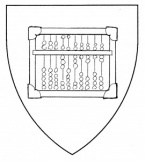Abacus
WARNING: Do not cite this page as a reference. This page is on this wiki to make the content "searchable" and easier to find. If you find the information you seek here, go to the original sources as linked below to verify the information and use them for your documentation.
Examples:[edit | edit source]
Period source/s:[edit | edit source]
Modern[edit | edit source]
Illustration from PicDic3:[edit | edit source]
 http://mistholme.com/dictionary/abacus/
http://mistholme.com/dictionary/abacus/
Pennsic Traceable Art Project:[edit | edit source]
[[1]] (defunct, use Traceable Art Project instead)
Precedents:[edit | edit source]
==November 2020 - On Oriental For several decades, the use of the term "Oriental" has been increasingly seen as tainted by a history of racism against the people of east Asia, their culture, and their artifacts: I myself encountered this fact as a student in the mid-1990s. And while it is true that every person's experience is their own, it is also true that the problems of racism and bigotry remain, and that a term that once simply meant "Eastern" now encompasses other baggage which we do not intend to carry.
Therefore, effective immediately, we are discontinuing use of the term "Oriental" to disambiguate charge variants. New blazon will be determined and appropriate reblazons will occur as we proceed.
Affected charges to be reblazoned soon include:
- Oriental abacus, which blazon came into being to distinguish from the European abacus of slightly different design, will simply be reblazoned as abacus. Should a European abacus be registered in fact, we will decide at that time whether to distinguish or, potentially, leave the difference as artistic license.
https://heraldry.sca.org/loar/2020/11/20-11cl.html
July 2012 Cover Letter - On Abacuses[edit | edit source]
A submission this month led to a discussion of period European and non-European abacuses. The European abacus, from Roman times through the end of our period, used grooves or lines drawn on a board, with counters placed in the grooves or simply on the lines. As a European artifact, this will be our default in the Society. The Oriental abacus, either Chinese or Japanese, used beads strung on a wire. While no evidence of its use in Europe has been presented, either in armory or in art of the period, it is similar enough in function and form to the European version, and there was enough contact between the East and the West that it is plausible that its existence was known. Therefore, as a non-European artifact, its use will be deemed a step from period practice. http://heraldry.sca.org/loar/2012/07/12-07cl.html
In the Ordinary[edit | edit source]
(as of 4/2012):